Navigating the complexities of parental rights termination can be emotionally taxing and legally intricate. In this article, we'll explore the essential components of a parental rights termination agreement, including the reasons, legal implications, and the steps involved in the process. Whether you're a parent seeking clarity or an advocate supporting a family, understanding this topic is crucial for ensuring the best outcomes for all parties involved. So, let's dive in and unravel the details that matter mostâread on to learn more!
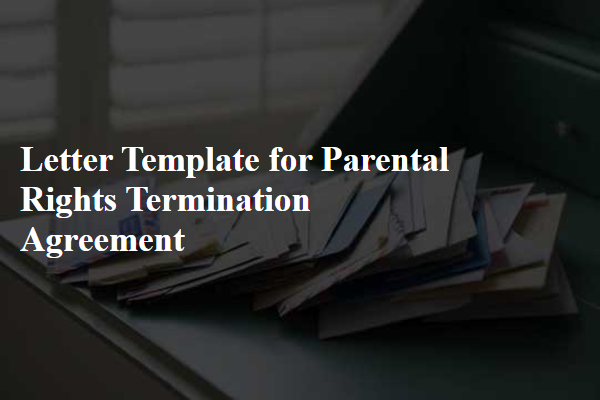
Legal Terminology
Termination of parental rights is a legal process where a parent's rights to their child are permanently ended. This procedure typically involves court proceedings in a family court, often requiring legal representation. Grounds for termination may include child neglect, abuse, substance misuse, or prolonged incarceration. Prior to the termination, notification to the parent is essential, alongside a chance to contest the decision. Following termination, the child may be placed for adoption or with a relative. The legal implications are significant; once parental rights are terminated, the parent has no legal claim or responsibility towards the child, impacting inheritance rights and future contact. States such as California, Texas, and Florida have specific statutes outlining the process, often emphasizing the child's best interest as the primary standard for evaluation.
Consent Acknowledgment
Parental rights termination agreements are significant legal documents impacting family dynamics and child welfare. In 2023, numerous states, including California and Texas, have specific statutory guidelines to follow. The consent acknowledgment section often requires clear delineation of the parties involved, including biological parents and guardians. Essential information such as names, dates of birth, and case numbers should be meticulously documented. Furthermore, provisions concerning the child's best interests highlight the importance of legal counseling prior to signing, ensuring informed consent. The acknowledgment must include a statement confirming understanding of the rights being relinquished, including future visitation rights or decision-making authority. This section is crucial for establishing a clear legal framework for the termination process.
Parental Information
Termination of parental rights is a legal process that involves the court permanently removing the rights of a parent towards their child, often occurring in cases of abuse, neglect, or when it's deemed in the child's best interest. Parents are typically required to provide essential information, such as full names, addresses, and Social Security numbers. State-specific guidelines, like those from the Family Court of New York, outline the steps required for the termination process, including giving notice to the parent whose rights are being terminated, and instances where a consent agreement can expedite the decision. Additionally, psychological evaluations or home studies might be necessary to assess the child's living conditions and emotional well-being. In situations involving foster care systems, such as those managed by the U.S. Department of Health and Human Services, the well-being of the child takes precedence, ensuring that the decision aligns with their long-term stability and security.
Child's Best Interests
Parental rights termination involves a complex legal process focused on a child's best interests. Courts carefully evaluate various factors, including emotional stability, safety, and overall quality of life, before making a decision. Legal standards require a clear demonstration of how termination will benefit the child, often assessed through reports from social workers, psychologists, and other professionals. Specific guidelines related to state laws may dictate necessary procedures, including court filings and hearings that consider the child's current living arrangements and future needs. The child's voice, through age-appropriate methods, may be included in decision-making to ensure alignment with their desires and feelings about stability and nurturing environments.
Legal Representation
In cases of parental rights termination, comprehensive legal representation is essential for navigating complex family law proceedings. Legal counsel, typically specialized in family law, ensures that the rights of all parties involved are upheld, especially in sensitive situations that may arise in courts across various jurisdictions, such as California or Texas. Key legal documents often include termination petitions and consent forms, which outline the relinquishing of parental rights and are submitted to state courts for judicial review. Throughout the process, the representation must address the best interests of the child, involving assessments by social workers or child welfare agencies, ensuring compliance with state laws governing parental termination, such as the Adoption and Safe Families Act. By securing competent legal representation, parents and guardians can achieve informed decisions, protecting their interests and the welfare of the child in these life-altering situations.

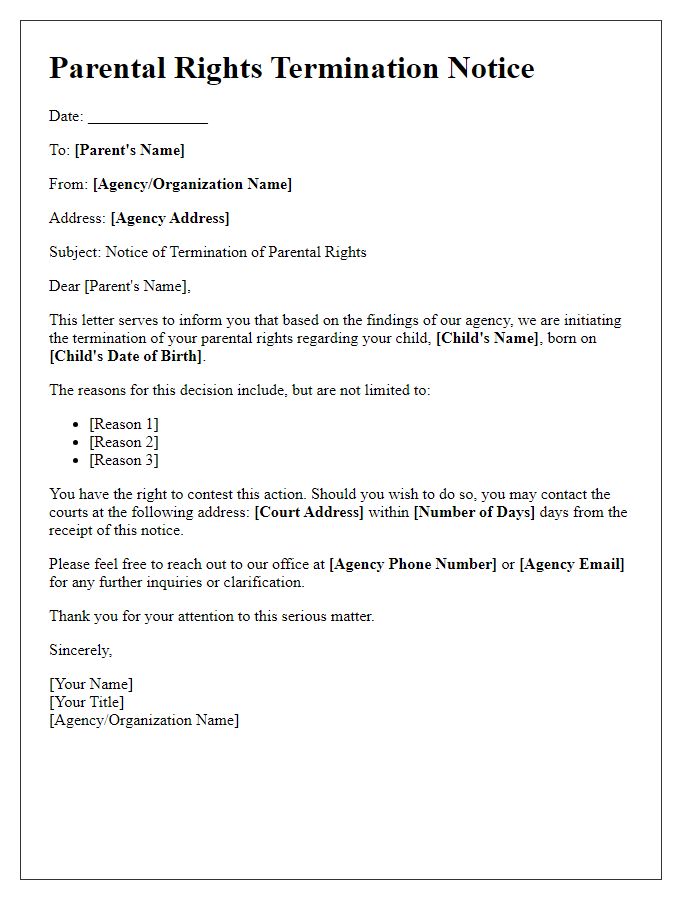
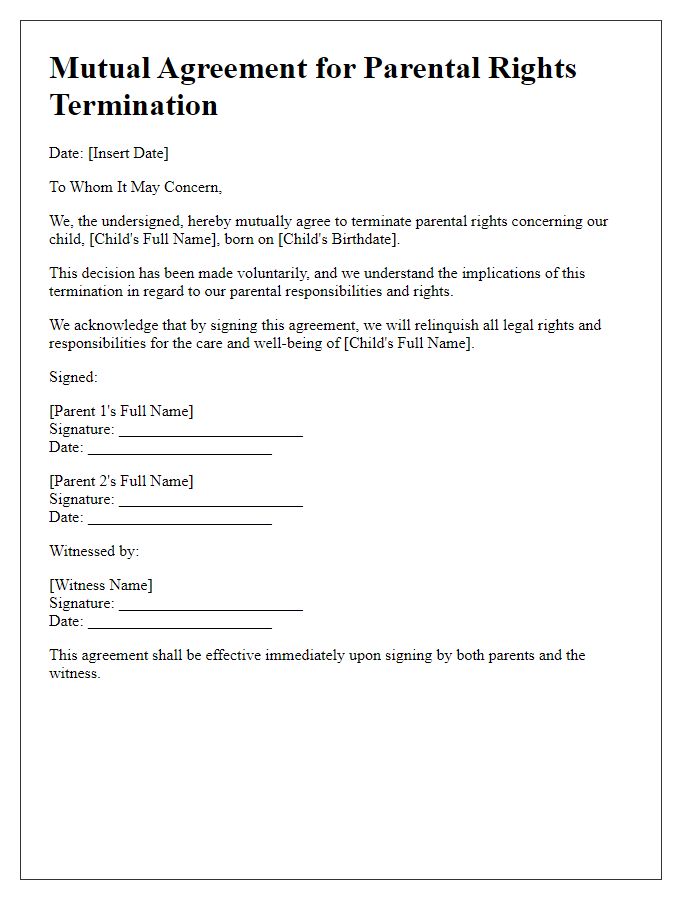
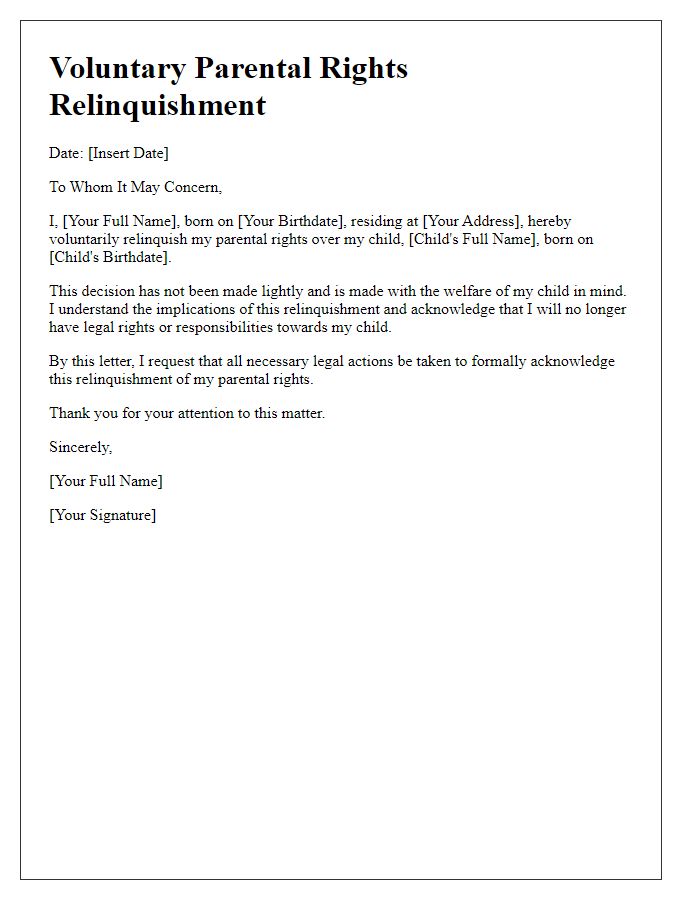
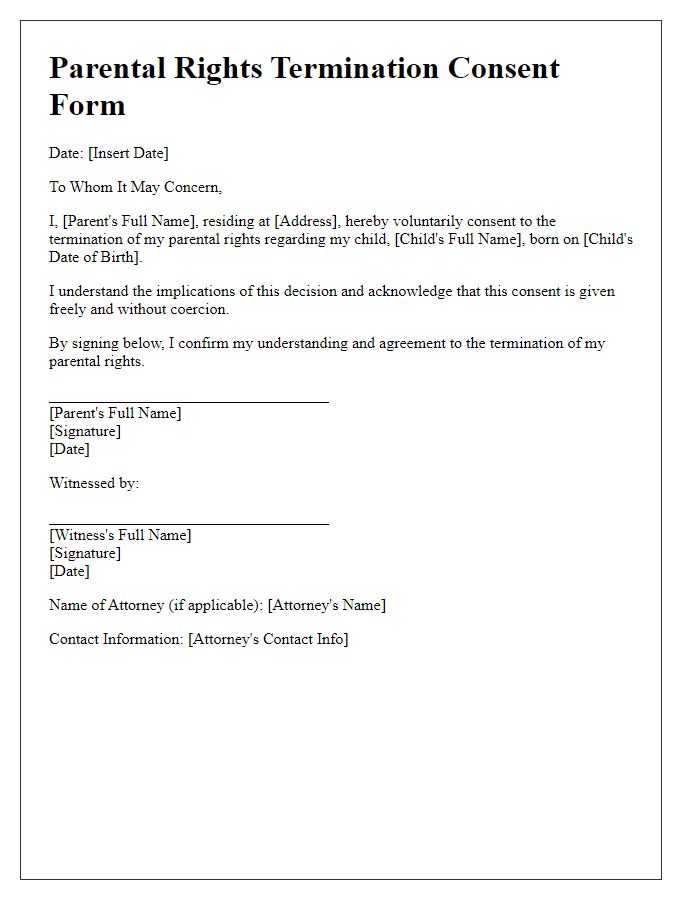
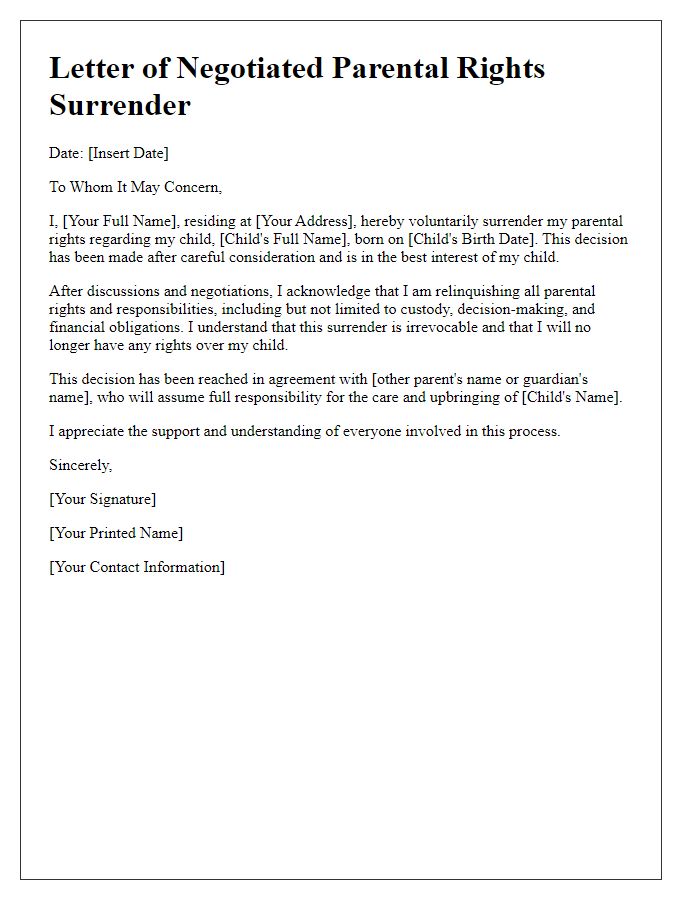
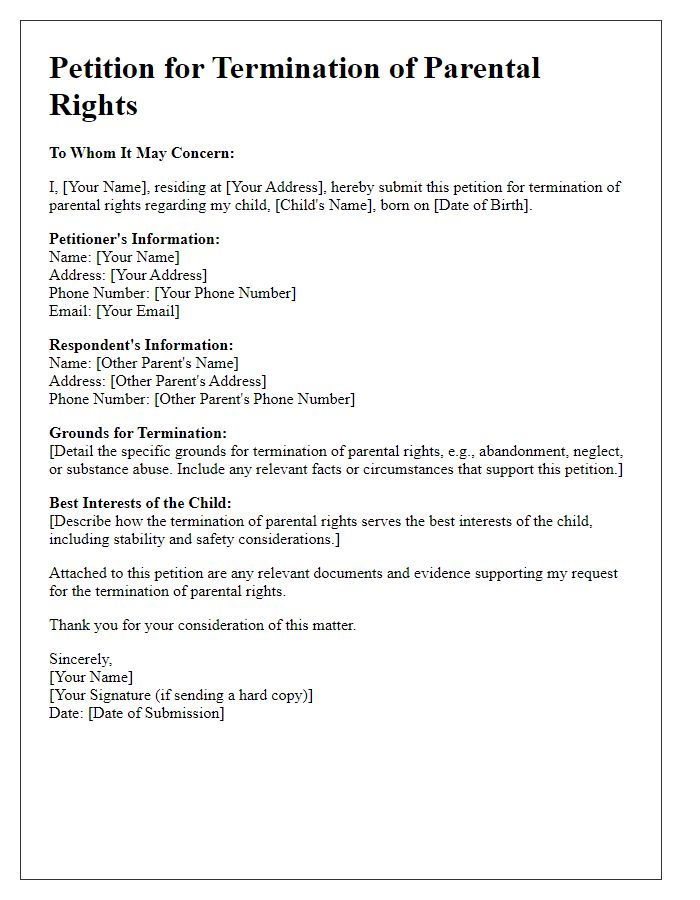
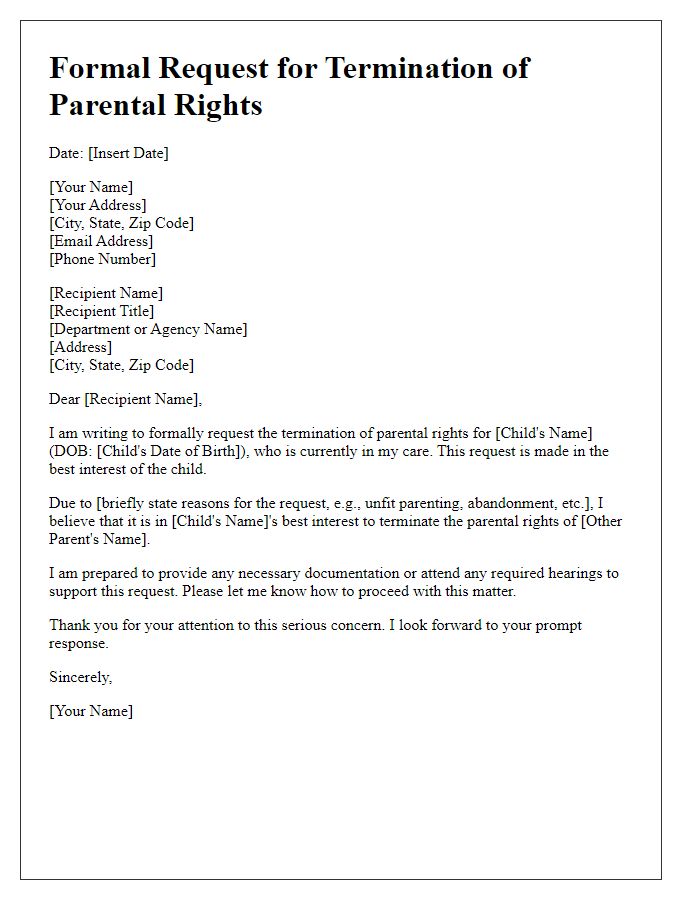
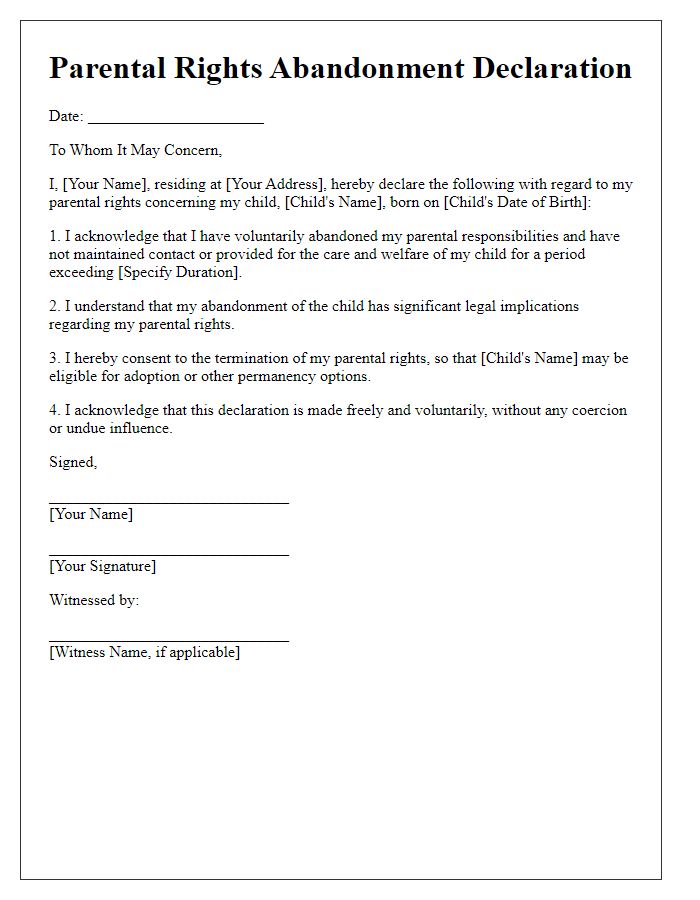
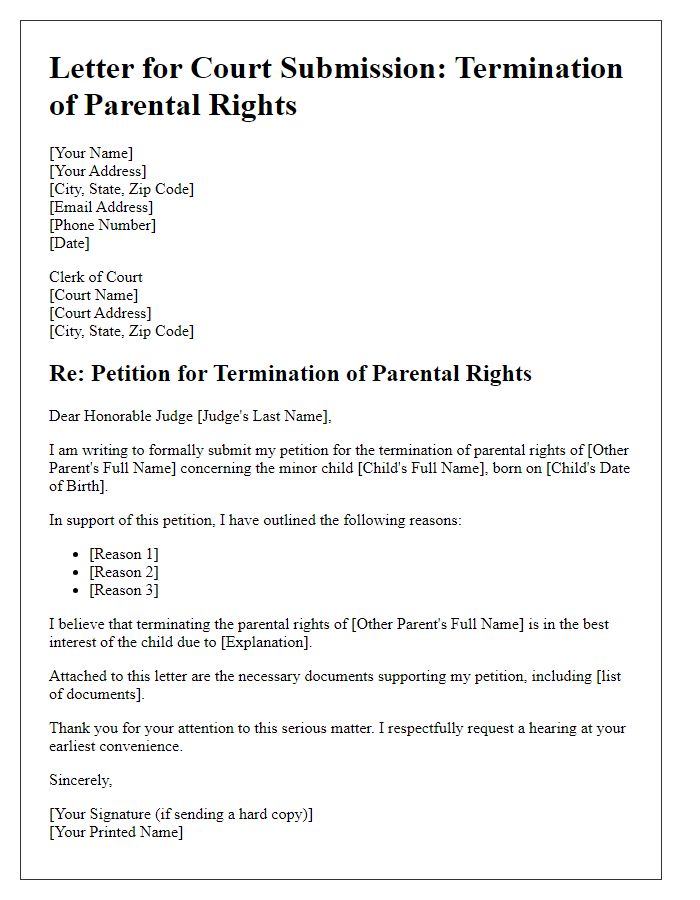
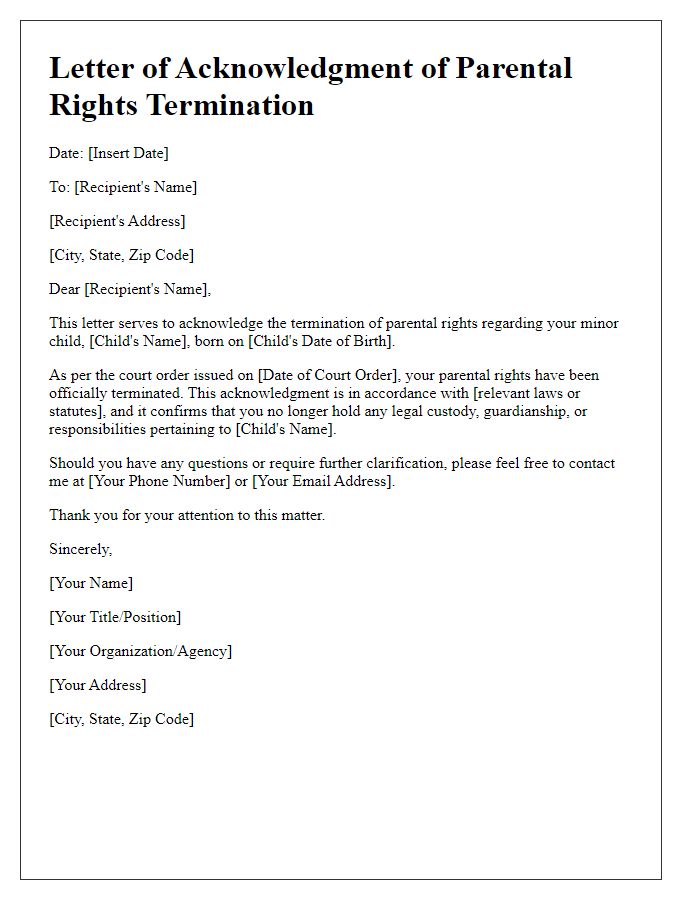


Comments